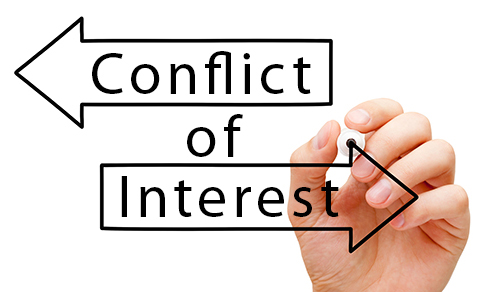A recent Florida Department of Transportation (FDOT) report on its study of the troubled Hillsborough Area Regional Transportation Authority (HART) was mandated by a Florida law that specified what “matters” were to be studied. Yet FDOT chose to add the matter of exploring “possible changes to ensure long term organizational sustainability” of HART.
Yet a public records request for records showing how “long term organizational sustainability of HART” became a study matter for FDOT returned no records.

Given that “dissolution” and “merger” with other agencies were study matters mandated by the law, adding “long term organizational sustainability” (a.k.a. “keep the failing organization going”) is noteworthy.
Even more noteworthy is the fact that there are no records of how “long term organizational sustainability of HART” was added to the study.
HART’s imploding ridership and repeated missteps over several years are well-documented, for example here, here and here. In 2020 in a classic case of “do as I say, not as I do,” the HART board ironically violated HART policy in firing its CEO for violating HART policy.
The law that passed last year that mandated FDOT’s study of HART required FDOT to “review aspects” of six “matters” specified in the law (items 2.a. through 2.f in the law). Those matter had to be included in the study, and they were.
However, 2.g in the law allowed FDOT to also include “any other matters deemed necessary or appropriate by” the department [FDOT].” FDOT did so, but without creating a record of how that came to pass. FDOT then claimed the following in its report of the study :
“The new law directs FDOT to …explore possible changes to ensure long term organizational sustainability” [of HART].

But that is a false statement. The law does not “direct” FDOT to do any such thing, and the word “sustainability” is nowhere to be found in the law. Simply put, the law neither “directs” nor mandates that FDOT “explore possible changes to ensure long term organizational sustainability” of HART.
“We believe changes that would result in operational efficiencies and improvements to transit services need to be developed with long term sustainability in mind,” Ming Gao, the FDOT project manager for the study told the Guardian. “These are not matters independent of each other regardless which one of the seven scenarios [laid out in the report of the study] the agency decides to move forward with.”
However, the law didn’t require the study to develop “scenarios,” nor is it up to “the agency” (HART) to decide what happens to it. The Florida Legislature has the power to dissolve HART. Furthermore, the Legislature most likely didn’t order the study just so that HART could read it and do as it wishes.
“Our consultant, Michael Baker International, produced the study report and it was reviewed and edited by multiple FDOT staff,” Gao said. He emphasized that FDOT is responsible for the final study report.
The meta data in the report shows that Michael Baker International employee Jaimison Sloboden was the author of the report. However, all that shows is that he compiled the material before delivering it to FDOT.

The law did allow FDOT “or its consultant” to perform the study, but giving the work to an outside company that performs engineering work for transit agencies in Florida raises questions about their forthrightness and objectivity. Do they have a conflict of interest?
Sources tell the Guardian that the bill sponsors were asked by FDOT if they objected to adding “long term organizational sustainability of HART” as a matter to be included in the study. Reportedly, they did not object.
Once that matter had been added, the main goal of the report seems to have become to advocate for the preservation of HART.
Not dissolution of HART, not any merger — instead, preservation of HART.
“I read the HART study in full and did not see any recommendations or scenarios that surprised me,” Brad Miller, CEO of the Pinellas Suncoast Transit Authority (PSTA) told the Guardian. “I don’t know what the Florida Legislature will do with it.”
Miller said he would not comment further because “”the PSTA Board has not taken a position on the study.”

“This study report is worthless,” said Sharon Calvert, a long-time observer of HART. “It simply regurgitates information already known, confirming HART’s ridership decline and increased operating costs. Simply seeking more funding is not a reasonable solution for a transit agency which is used by very few. The reality is that traditional transit is becoming increasingly irrelevant.”
“It’s disappointing that more emphasis wasn’t placed on investigating HART’s finances over the last decade,” Calvert continued. “They have not been good stewards of taxpayer money. The Legislature should have had the Inspector General investigate HART’s finances. “
Speaking of stewardship: is this another case of political theater? Specifically: politicians trying to be seen as reformers and good stewards of public funds when instead actually wanting to keep the corrupt HART gravy train going.
And exactly who came up with the idea of adding “long term organizational sustainability” of HART to the study?
As always….the Guardian reports and the readers decide. Please like our Facebook page to find out when we publish new stories.


